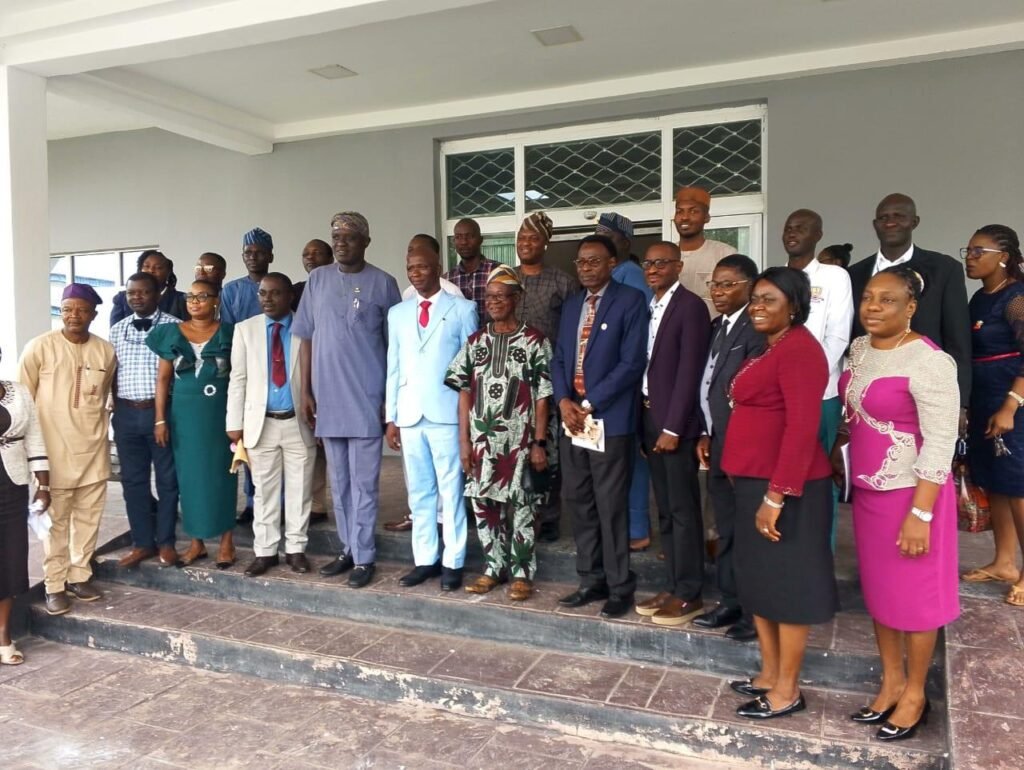In recent weeks, the Oyo State Government has once again restated its dedication to promoting technical and vocational education (TVE) as a core pillar of human capital development. This renewed promise, made through government representatives, reflects a growing recognition that Nigeria’s future depends not just on academic qualifications but also on practical skills that translate directly into jobs and entrepreneurship.
At a time when youth unemployment is one of Nigeria’s most pressing challenges, Oyo’s decision to prioritise technical and vocational pathways signals an attempt to close the gap between education and employability. It is also a step toward repositioning the state as a hub of skilled labour, where young people can transform their talents into sustainable livelihoods.
Table of Contents

Why Technical and Vocational Education Matters
Across Nigeria, the conversation about education has too often centred on university degrees. For decades, parents pushed children toward professional courses like medicine, law, or engineering, sometimes overlooking the practical trades that sustain communities and economies. But today, as industries evolve and automation disrupts traditional jobs, the demand for skilled workers in fields such as carpentry, mechanics, fashion design, ICT, electrical work, and catering has skyrocketed.
Technical and vocational education offers structured training in these areas, producing graduates who are “job-ready.” Unlike traditional academic pathways that may leave students searching for scarce white-collar jobs, TVE equips young people with tools to become self-employed or to fill labour gaps in critical sectors.
In Oyo State, this has added significance. The state has a vibrant population of young people, many of whom struggle with underemployment. By focusing on TVE, Oyo is offering these youths a chance to become artisans, innovators, and entrepreneurs. It is not just about earning a living but also about the dignity of labour—restoring respect to professions that have too often been dismissed as “for those who could not make it to the university.”
A key point here is accessibility. Unlike the long and costly route of university education, vocational training can be shorter, more affordable, and more practical. This means it can reach more people across different social classes, particularly those who cannot afford tertiary tuition. For Oyo, this is a path toward inclusive growth.

Government’s Renewed Commitment and Pathways Forward
While Oyo’s leaders have pledged support for technical and vocational education before, this latest reaffirmation is meant to demonstrate seriousness and continuity. The government appears to understand that TVE cannot succeed without clear policies, reliable funding, and modern infrastructure.
Some likely areas of intervention include:
- Modernising training centres: Many technical colleges and vocational institutes still rely on outdated equipment. The government is expected to upgrade workshops, ICT labs, and classrooms to align with present-day industry demands.
- Partnerships with the private sector: A strong vocational system thrives on collaboration with industries. By working with local businesses, Oyo can ensure that training is relevant, while creating internship and apprenticeship opportunities for students.
- Accredited certification: Aligning curricula with the National Board for Technical Education (NBTE) and other regulatory bodies will ensure that graduates leave with certificates that are recognised nationwide and internationally.
- Funding support for trainees: Students may require stipends, equipment loans, or grants to complete their training and transition into work or entrepreneurship. With the right financial structures, vocational training can become more attractive to young people.
- Changing perceptions: There is still a cultural bias that sees vocational training as inferior to university education. To counter this, the government could launch awareness campaigns showing success stories of skilled professionals whose careers began in vocational schools.
These steps, if consistently pursued, will transform Oyo’s educational landscape and ensure that TVE becomes more than just a talking point.
From Words to Action: The Road Ahead
For citizens and education stakeholders, the key question now is whether Oyo’s promises will move beyond rhetoric into tangible outcomes. Nigeria has seen many policy declarations that never materialised into concrete results. For technical and vocational education to thrive in Oyo, the government must match its reaffirmation with measurable action.
One way is through transparent timelines and progress reports. If new training centres are being built, the public needs to know when they will open. If funding is being released, beneficiaries should be able to access it without bottlenecks. In addition, training outcomes should be tracked, with data on how many students graduate each year, how many secure employment, and how many start businesses.
Civil society groups, professional associations, and parent-teacher organisations also have a role to play. Their voices can keep the government accountable while supporting awareness campaigns to shift perceptions about TVE. Similarly, the private sector—especially manufacturers, artisans’ guilds, and service providers—must be part of curriculum design and training delivery, ensuring that graduates possess the skills employers need.
Ultimately, the government’s reaffirmation is only the beginning. What will define Oyo’s legacy is not the strength of its statements but the impact felt in the lives of its youths: a young welder who finds steady work, a fashion designer who launches a small business, or an ICT trainee who develops a tech solution with global reach. These individual successes, multiplied across thousands of households, are what will validate the government’s commitment.

Conclusion: A Chance for Real Transformation
Oyo State’s decision to place technical and vocational education at the heart of its development agenda is both timely and strategic. In a country where millions of young people graduate each year without clear job prospects, TVE provides a lifeline—a chance to move from unemployment to empowerment.
The reaffirmation of commitment by the Oyo State Government must therefore be seen as an opportunity to turn aspirations into action. By investing in infrastructure, collaborating with industries, supporting students, and changing mindsets, Oyo can become a model for other Nigerian states.
In the words of many education experts, “skills are the new currency of the 21st century.” If Oyo follows through, it could raise a generation of skilled, confident, and innovative young Nigerians ready to compete locally and globally.
For the young people of Oyo, the message is clear: education is no longer just about certificates—it is about competence, creativity, and capacity to shape one’s own future.
Join Our Social Media Channels:
WhatsApp: NaijaEyes
Facebook: NaijaEyes
Twitter: NaijaEyes
Instagram: NaijaEyes
TikTok: NaijaEyes
READ THE LATEST EDUCATION NEWS





